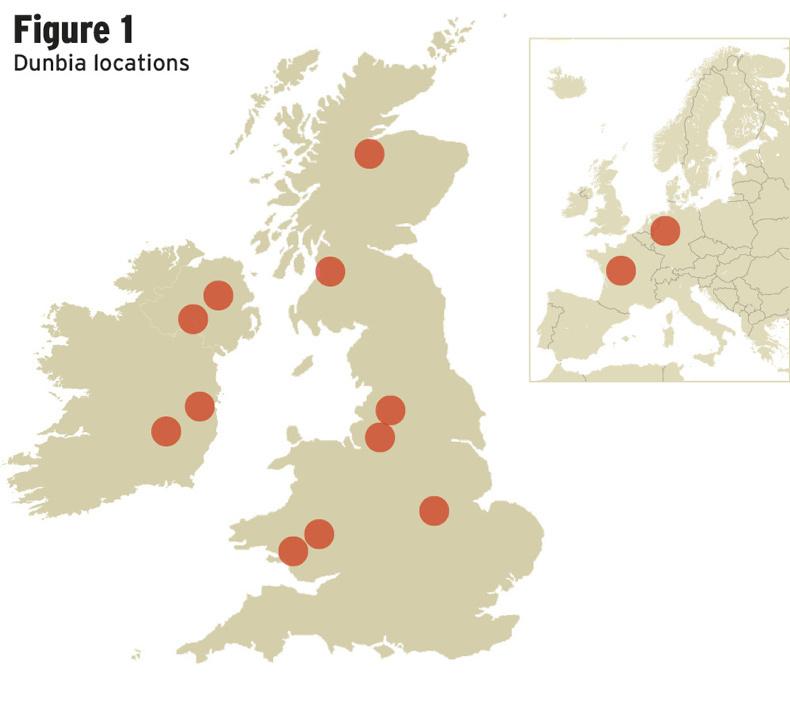The proposed sale of Northern Ireland-based meat processor Dunbia to Dawn Meats appears to be nearing an endgame.
Despite neither company confirming a proposed deal, the sale of Dunbia has been on the cards for some time, with Dawn the most likely suitor.
The Irish Farmers Journal reported a year ago that Dunbia was forming a joint venture with 2Sisters, the multi-species meat processor with large retail contracts. However, when that did not happen, it was logical that the company would continue its search for a partner to develop its red meat business.
Dunbia owners Jim and Jack Dobson’s desire to exit the sector has been well flagged but drew attention from every serious major player in the industry. Dunbia has been built up over the past four decades by the Dobsons from a small butcher shop in Co Tyrone in 1976, trading as Dungannon Meats.
Their first venture into processing was the building of an abattoir in a nearby industrial estate in 1980 which specialised in supplying carcase beef to butchers across Northern Ireland and wholesaling of carcases to cutting plants throughout Ireland and the UK.
They added their own cutting plant in 1990 and this was followed by the addition of a retail packing plant to service the growing Sainsbury prepacked beef business in 1993. Their first acquisition followed in 1998 with the purchase of Lancashire-based Rose County meats in England followed by the huge lamb processing business Oriel Jones in mid-Wales in 2001, the same year as they bought Excel Meats and Newgrange meats, their first ventures into the Republic of Ireland.
Kilbeggan was added in 2003, followed by Keypak’s Preston factory in 2007, the same year as they moved into Scotland with the purchase of the Rhinds Plant in Elgin.
In between, they rebranded to Dunbia. They made their first venture into the pork business in 2009 with the purchase of the Stevenson’s factory in Ballymena, Co Antrim, which in turn was sold for a £18m to Cranswick late last year.
Dunbia made further acquisitions of a beef factory in mid Wales in 2013 and a retail packing factory in Ayr, Scotland, in 2014.
Dunbia’s multi-site location has made them a serious player in the UK meat processing business, second in size to ABP but without the same retail presence.

Why Dawn?
If Dawn was to complete a deal with Dunbia, either as a takeover or part acquisition, it should work for both parties. Dunbia is a small player in the Republic of Ireland but has a major presence in the UK.
It would greatly expand Dawn’s business in the UK in addition to their factories in England and Scotland and retail packing factory in Wales, as well as in the Northern half of Ireland. The Dawn-French connection could add to Dunbia’s already huge presence in that lamb market as well servicing the Dawn business with McDonald’s.
Dunbia was publishing accounts in recent years with the year ending March 2016 showing an operating profit of £9.2m (€10.6m) on a turnover of £787m (€904). This is a significant amount of money in absolute terms but small as a percentage of turnover at 1.2%.